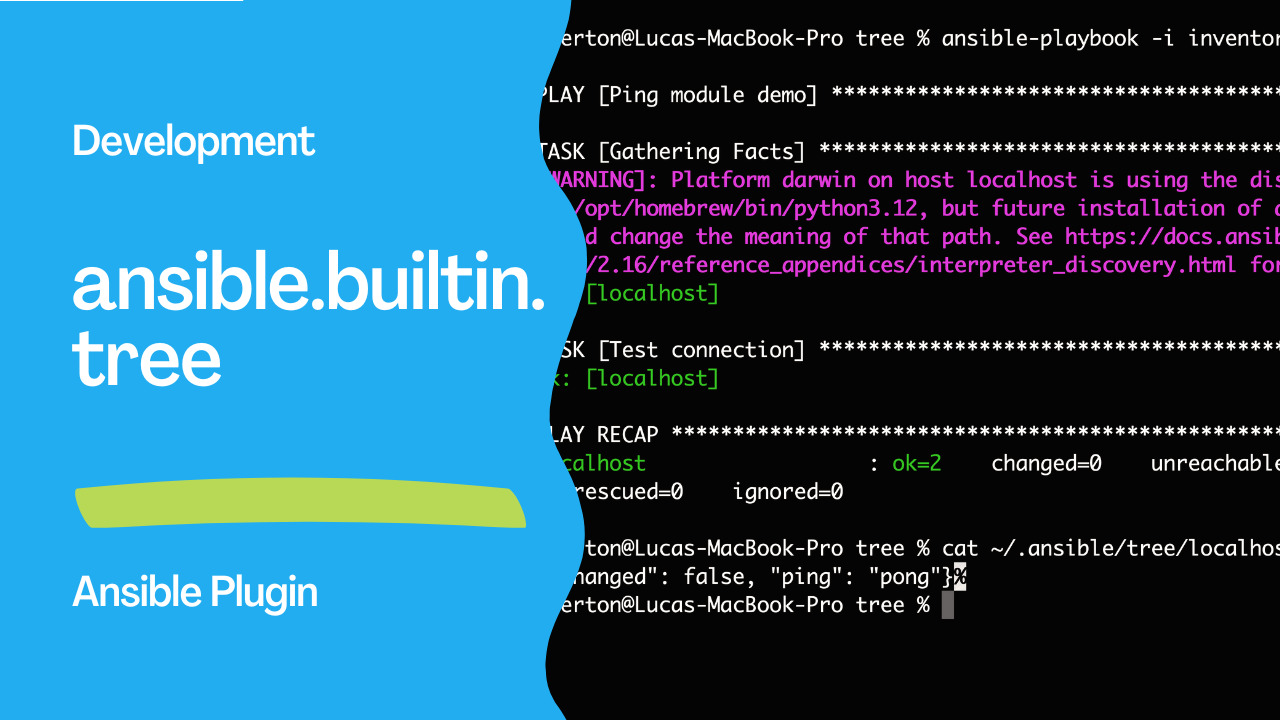Introduction
Ansible, an open-source automation tool, is renowned for its ability to streamline IT tasks and configuration management. One of Ansible’s powerful features is its extensible callback system, which allows users to capture and handle events triggered during playbook execution. In this article, we’ll delve into the ansible.builtin.tree callback, introduced in Ansible-core version 2.11, and explore how it can be utilized to save host events to files.
Understanding the Callback Parameters
directory Parameter
The directory parameter is a crucial component of the ansible.builtin.tree callback. It specifies the path to the directory where per-host JSON files will be saved. When using ad-hoc commands, this directory can be set using the --tree option. The default directory is “~/.ansible/tree.”
Let’s break down the relevant details:
Added in Ansible-core 2.11: The
directoryparameter was introduced in Ansible-core version 2.11, making it available for users in more recent releases.INI Entry:
[callback_tree] directory = ~/.ansible/treeUsers can configure the
directoryparameter in theansible.cfgfile under the[callback_tree]section.Environment Variable:
export ANSIBLE_CALLBACK_TREE_DIR=~/.ansible/treeAlternatively, the
directoryparameter can be set using theANSIBLE_CALLBACK_TREE_DIRenvironment variable.
Practical Example
To illustrate the usage of the ansible.builtin.tree callback, consider the following example playbook and configuration:
Inventory (inventory)
localhost ansible_connection=local

Playbook (ping.yml)
---
- name: Ping module Playbook
hosts: all
tasks:
- name: Test connection
ansible.builtin.ping:
Ansible Configuration (ansible.cfg)
[defaults]
callbacks_enabled=ansible.builtin.tree
[callback_tree]
directory = ~/.ansible/tree
In this example:
- The inventory file (
inventory) contains a local host. - The playbook (
ping.yml) is a simple one that pings all hosts to test the connection. - The Ansible configuration file (
ansible.cfg) enables theansible.builtin.treecallback and sets the directory for saving the host events to~/.ansible/tree.
Execution
When the playbook is executed, the ansible.builtin.tree callback will save host events to per-host JSON files in the specified directory (~/.ansible/tree in this case). This information can be invaluable for troubleshooting, auditing, and reviewing the execution flow of Ansible playbooks.
By utilizing this callback, users can gain insights into the details of each host’s execution, providing a structured and organized way to capture events during playbook runs.
cat ~/.ansible/tree/localhost
{"changed": false, "ping": "pong"}
Conclusion
In conclusion, the ansible.builtin.tree callback is a powerful tool for saving host events to files, enhancing Ansible’s capabilities for logging and analysis. Users can leverage this feature to improve the transparency and traceability of their automation workflows. As Ansible continues to evolve, exploring and understanding such features becomes essential for mastering the tool’s capabilities.
Academy
Learn the Ansible automation technology with some real-life examples in my
Udemy 300+ Lessons Video Course.

My book Ansible By Examples: 200+ Automation Examples For Linux and Windows System Administrator and DevOps

Donate
Want to keep this project going? Please donate
